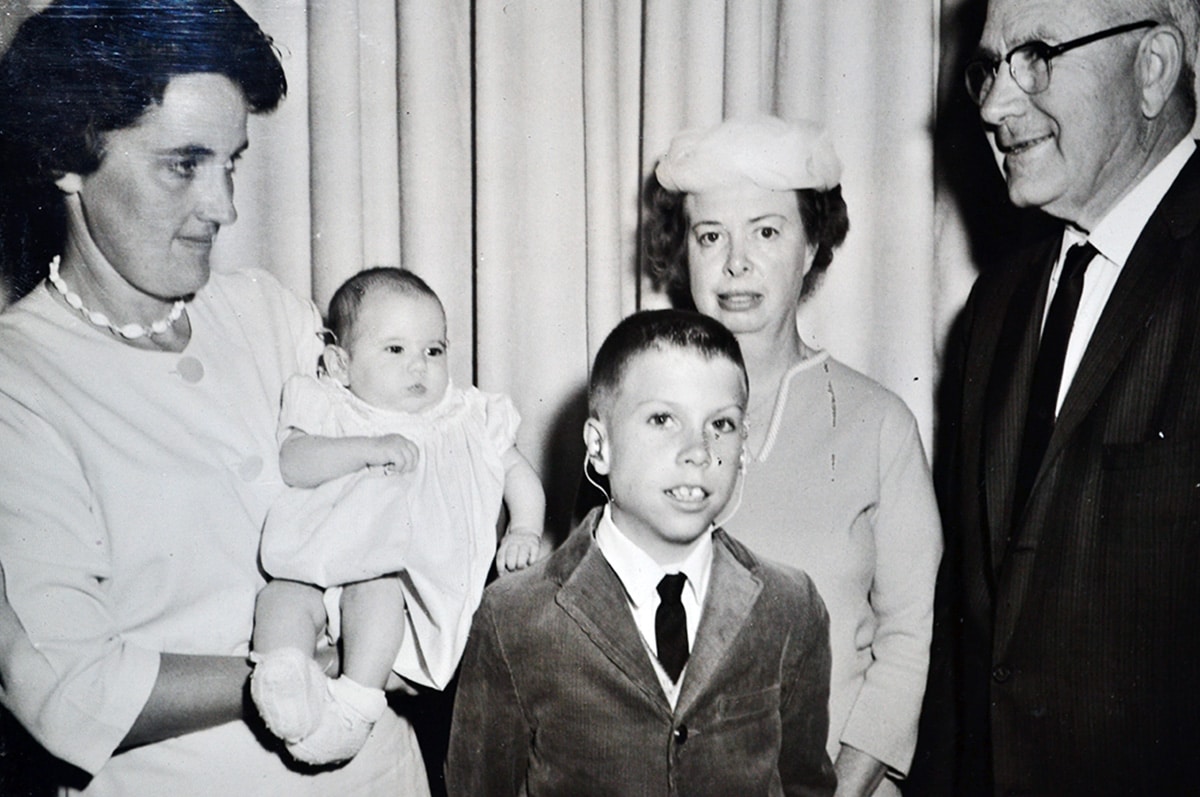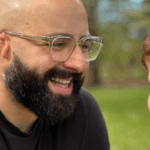MED-EL
Published Oct 08, 2014
Don Liveley: Overcoming Hearing Loss Pt.1

Editor’s note: Don Liveley is the recipient of bilateral MED-EL cochlear implants. His hearing loss journey begins over 50 years ago, and we’re excited to be able to share it with you. Here is part one.
I was born in 1951, in Los Angeles, USA. When I was two years old, the Children’s Hospital of Los Angeles diagnosed me as deaf, mentally retarded, and incorrigible. They counselled my parents to institutionalize me.
But I’m still here. My deaf and hearing experience has been quite a story.
My parents didn’t institutionalize me. Instead, they took me to visit Dr. Ciwa Griffiths, a teacher of the deaf and founder of the HEAR Center in Pasadena, California. She was one of the three pioneers of what’s known as the deaf-mainstream movement and promoted giving young children with hearing loss access to hearing aids so that they could integrate into society.
The First Hearing Aids
It was around this time, 1955–1956, that technology began to offer the first real hope for hearing loss with the introduction of the Vicon Model V-300 Hearing Aid. These new hearing aids used transistors instead of vacuum tubes so that the hearing aids could be smaller, lighter, battery-powered, and better sounding. It was amazing technology at the time, but my how times have changed: it was twice as thick as an iPhone and needed four batteries.
Dr. Griffiths opened her center in the fall of 1954, and I showed up with my parents in late January 1955. By then my hearing loss was about -85 dB. My early activation was on my fourth birthday: February 7, 1955. On that day I did one thing that no one else had ever done in Dr. Griffiths’ presence or professional experience: when I was fitted with my hearing aids, I said a word. That word was “blue”, and for about a year after activation I wore nothing but blue clothing from head to toe.
Going to School
Practically my entire education was done through the public school system, except my first six months of kindergarten in a private school. At the time, there were no government programs for children with hearing loss and no educational support beyond getting a chair in the front row.
Despite the hospital’s diagnosis of retardation, within months my vocabulary caught up to the level of my peers. My speech delineation also caught up to them, within two years. Within four years I was excelling in specific academic domains. I was the only deaf child in the entire school, and I was the teacher’s first choice when a student read to the class. Ultimately, I received 3 collegiate degrees and started my dissertation for a doctorate, but I put that aside when my spouse was tragically killed in an accident.
A Life with Hearing Aids
This “wow factor” extended well beyond the classroom, and into the portals of medical professionals. There were appearances on TV, the radio, press conferences, parent-teacher programs, professional and academic conferences, and more.
In those early years, life for me was more adult-like than child-like. Fortunately, my saving grace was books. My family would read back and forth—aloud! We read and we read. Then my father purchased an early television and added a remote speaker, so I could sit and watch and hear! For me, going to the library was like how some people take daily walks. Life captivated me then, and it still does today. The little things that most people would consider trivial or irrelevant? Not I. Talking and talking and having my self-worth being affirmed for talking and talking was exciting.
I wore bilateral hearing aids until I was 37 years old, at which point neuralgia struck and my left ear could no longer process sound, even with a hearing aid. That incident started a 24-year hiatus from binaural hearing and I had to survive as a deaf man with only one hearing aid for navigating sound and life.
MED-EL
Was this article helpful?
Thanks for your feedback.
Sign up for newsletter below for more.
Thanks for your feedback.
Please leave your message below.
Thanks for your message. We will reply as soon as possible.
Send us a message
Field is required
John Doe
Field is required
name@mail.com
Field is required
What do you think?
MED-EL


